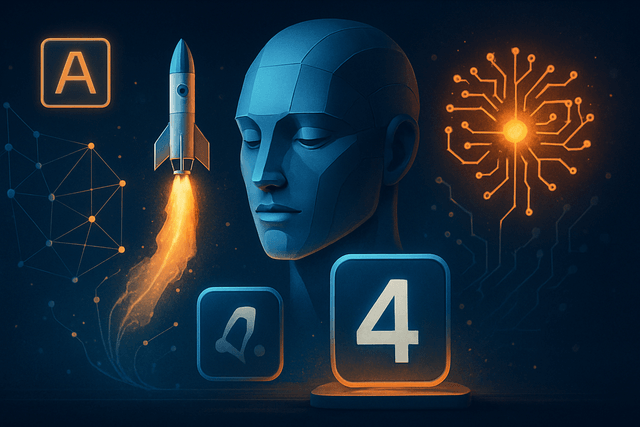Anthropic has officially launched Claude 4, marking a significant evolution in artificial intelligence capabilities that promises to transform how businesses and developers interact with AI systems.
The Claude 4 family, which includes Claude Opus 4 and Claude Sonnet 4, represents Anthropic's most powerful AI models to date. Both models feature a revolutionary hybrid reasoning architecture that allows users to toggle between near-instant responses for routine tasks and extended thinking mode for complex problems requiring deeper analysis.
Claude Opus 4 stands out as what Anthropic calls "the world's best coding model," achieving industry-leading results on software engineering benchmarks. In testing, it demonstrated remarkable sustained performance, working autonomously for up to seven hours on complex coding tasks. This capability dramatically expands what AI agents can accomplish, enabling them to handle thousands of steps across long-running workflows without losing focus or context.
Sonnet 4, which replaces Claude 3.7 Sonnet, delivers superior coding and reasoning capabilities while being optimized for efficiency and everyday use cases. It maintains the same pricing as previous Sonnet models at $3 per million input tokens and $15 per million output tokens, making advanced AI capabilities more accessible.
Both models introduce several groundbreaking features, including extended thinking with tool use, which allows Claude to alternate between reasoning and utilizing external tools like web search. They can also use multiple tools in parallel and, when given access to local files, demonstrate significantly improved memory capabilities by extracting and saving key information to maintain continuity across complex tasks.
The release coincides with the general availability of Claude Code, which now supports background tasks via GitHub Actions and native integrations with popular development environments like VS Code and JetBrains. This enables seamless pair programming with AI that can understand and navigate complex codebases.
Claude 4 is available through multiple channels, including the Anthropic API, Amazon Bedrock, and Google Cloud's Vertex AI. The Pro, Max, Team, and Enterprise Claude plans include both models, while free users have access to Sonnet 4.
With this release, Anthropic has raised the bar for what AI assistants can accomplish, particularly for complex tasks across work and learning environments. The models' ability to sustain performance on long-running tasks positions them as powerful tools for software development, research, and other fields requiring sophisticated reasoning and problem-solving capabilities.

